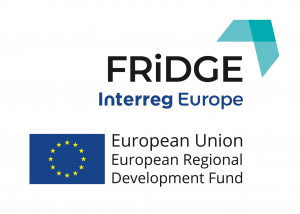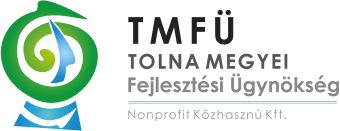
1. Introduction (a short overview of the GP)
Good practice general information | |
Title of the practice [100 characters] | Food Pilot: an application and analysis centre for the food processing industry |
Does the practice come from an Interreg Europe project? | NO (EFRO, Horizon2020) |
Thematic objective of the practice | SME Competitiveness |
Geographical scope of the good practice | Regional |
1.1. Detailed information on the GP
Good practice detailed information | |
Short summary of the practice [160 characters] | The Food Pilot is an application and analysis centre founded by Flanders’ FOOD and ILVO. The food processing industry can use the Food Pilot facilities to develop and test new products and processes. Processing can be simulated using semi-industrial scale production lines; product quality can be analysed in the laboratory. |
Detailed information on the practice [5000 characters] | The Food Pilot helps companies, labs and policy makers with agri-food challenges, such as product development, process optimization or troubleshooting in case of product-technical problems. Through co-creation, they offer solutions based on advice, lab analyses and/or pilot trials on semi-industrial processing equipment. The Food Pilot offers an integrated package of services ranging from the first innovative idea to a successful end-product. The client can choose support for one, several or all of the steps in an innovation process, accompanied as desired by a project-specific package of testing, analysis and advice. The services on offer can be divided into 5 categories: individual support, overview of current knowledge, recipe and process development, pilot tests and lab analyses.
1. Individual support They first analyse the question, give advice, and discuss which tests would be appropriate. For pilot tests or analyses, they first draw up a detailed quote. They also mention any subsidies that may be appropriate. To begin the project, you are first assigned a Food Pilot expert. This contact person coordinates the project from beginning to end. The specific steps are always tailored to the project, such as lab analyses, pilot tests, advisory support or the creation of a knowledge overview. You are consulted at every step along the way, with consistent and integrated follow-up. All requests are kept confidential and can be guaranteed by a non-disclosure agreement.
2. Overview of current knowledge A scientific literature study ensures that only the most up-to-date knowledge is applied to the project. This can include the choice of ingredients, a recipe, a process technology, aspects of legislation, etc.
3. Recipe and process development All of the advice is tailor-made. The first consultation is free and without obligation.
4. Pilot tests The Food Pilot has more than 50 food processing pilot devices used to drive innovations in the agro-food industry. The pilot facilities include conventional basic equipment as well as innovative technologies for processing dairy, meat, fruit and vegetable products. A wide range of processes is available: mixing, emulsifying, shaping, pasteurising, sterilising, aerating, fermenting, baking, drying, smoking, packaging, etc. Why pilot tests? On these flexible, semi-industrial production lines, you can evaluate new ingredients, recipes or processes using less raw material, without stopping your own production line, and with expert guidance. A pilot test gives you representative test results that you can then scale up towards an industrial process. Small-scale samples can be produced for feasibility studies.
For pilot tests or analyses, they first make a detailed quote. After an agreement is reached, the pilot trials are scheduled. When appropriate, they can also draw up an ‘experimental design’ and perform a statistical analysis on the test results. The technicians handle the pilot installations while you watch to see how the product evolves. After finishing the pilot tests, the test samples can be taken back to the company. The parameters of the process teach you how to scale up the production in your production hall. Additional laboratory analyses can give more insight into the microbiological, chemical and physical quality of your product. Billing happens after the test is completed.
5. Lab analyses The food industry always needs to guarantee good quality of its products, as shown by correct analytical results obtained by an expert lab. Food authorities also need reliable analytical assays. ILVO offers these high level analyses, with competence guaranteed by working under the ISO 17025 norm (which specifies the general recommendations about performing laboratory analyses). |
Resources needed [300 characters] | It is very difficult to determine how many colleagues are specifically deployed in the Food Pilot, because many of them also fulfill other tasks within ILVO. It is a fact that ILVO has 646 employees, which is good for 415 FTEs. Of the 645 employees, 185 prs. in the Technology and Power unit. A share of these people support the Food Pilot operation, with a contribution to knowledge building / maintenance / performance analyzes / pilot tests … |
Timescale (start/end date) | 2009 – Ongoing |
Evidence of success (results achieved) [500 characters] | – >20.000 food analyses a year – >550 Pilot trials a year – >400 Food companies a year – >100 Advices a year – 5 workshops or seminars a year The Food Pilot has already led to a large number of realizations: – Empro produces high quality proteins from chicken side streams – Talina develops hibiscus drink – Karma Karma launches an oatmeal cup – Inex reintroduces the Bambix grow milk and grow drink (soy) – Chicory grower Cools and croquettes manufacturer Gastonello develop a “Chicory Croquette” – Citrique belge N.V. works on valorisation of its side streams – Berloumi, a cheese to grill upscaled |
Difficulties encountered / lessons learned [600 characters] | It is very important to continue to grow in knowledge and research infrastructure (1) and in contact with stakeholders / companies (2). (1) It is a constant challenge to build the knowledge needed to help solve new problems / questions from the sector. And that knowledge must be very broad in order to be able to tackle the great diversity of issues, to get to the core of the problem and solution. In line with this, there is a need for adapted research infrastructure. In order to answer questions about the production method, taste, health, etc., investments are currently being made in knowledge development, a pilot line to simulate production, analysis methods, expertise in product development, … (2) It is important to have good contact with the various actors such as food producers, technology suppliers, governments, other knowledge institutions, and where to cooperate. With good contact, the questions can be captured from the sector. |
Potential for learning or transfer [1000 characters] | The Food Pilot shows that intensive cooperation between the government and the market can pay off. Although this is a large scale and capital intensive project, it holds a lot of potential for learning or transfer. An example: The Food Pilot started in 1950 as the Belgian National Dairy Station. The dairy industry and research institutes used this Station to study and optimise the processing of dairy products. The Dairy Station created many new cheeses as well as new yoghurts, butters, cream and dairy desserts. In other European regions, smaller and less capital intensive pilot stations could be set up that focus on the specific needs for that region. |
Further information | |
Keywords related to your practice | food processing technologies
|
